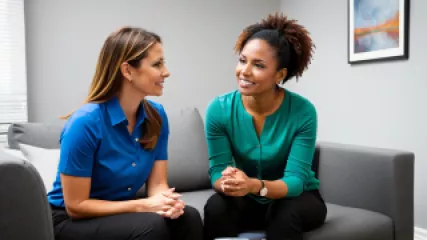Understanding Therapeutic Self-Disclosure: A Comprehensive Guide
Therapeutic self-disclosure is a powerful tool used in various forms of therapy to facilitate personal growth and healing. It involves therapists sharing personal information about themselves with their clients. This practice aims to establish trust, create a sense of connection, and promote a deeper therapeutic relationship. However, understanding the nuances and appropriate use of therapeutic self-disclosure is crucial for therapists to ensure ethical and effective treatment.
What is Therapeutic Self-Disclosure?
Therapeutic self-disclosure refers to the intentional sharing of personal information by therapists during therapy sessions. This information can pertain to a wide range of topics, including personal experiences, emotions, thoughts, or beliefs. The purpose of self-disclosure is to provide clients with insight, empathy, validation, and a sense of shared humanity.
Self-disclosure can take various forms, such as sharing personal anecdotes, discussing relevant life experiences, or expressing personal opinions. The content and extent of self-disclosure may vary depending on the therapeutic approach, the client's needs, and the therapist's professional judgment.
The Benefits of Therapeutic Self-Disclosure
When used appropriately, therapeutic self-disclosure can have several benefits for both therapists and clients:
- Building Trust: Self-disclosure can help establish trust between the therapist and client. By revealing aspects of their own lives, therapists demonstrate vulnerability and authenticity, which can encourage clients to open up and feel more secure in sharing their own experiences.
- Enhancing the Therapeutic Relationship: Self-disclosure can foster a stronger therapeutic alliance. It allows clients to see their therapists as real people with relatable experiences, making the therapy process more collaborative and less hierarchical.
- Modeling Healthy Communication: Therapists can use self-disclosure to model effective communication and coping strategies. By sharing personal experiences of growth and overcoming challenges, therapists provide clients with real-life examples of resilience and hope.
- Normalizing Experiences: Self-disclosure can help clients feel less isolated or abnormal by normalizing their experiences. When therapists share similar struggles or emotions, clients may feel validated and more accepting of their own thoughts and feelings.
The Importance of Boundaries and Ethics
While therapeutic self-disclosure can be beneficial, it is vital for therapists to maintain appropriate boundaries and adhere to ethical guidelines. Here are some important considerations:
- Client-Centered Approach: The focus should always remain on the client's needs and therapeutic goals. Therapists must carefully assess whether self-disclosure serves the client's best interests or if it may unintentionally shift the focus onto the therapist.
- Relevance and Timing: Self-disclosure should be purposeful and relevant to the client's treatment. It should align with the therapeutic objectives and occur at an appropriate stage in therapy. Premature or irrelevant self-disclosure may disrupt the therapeutic process.
- Avoiding Therapist-Centric Disclosures: Therapeutic self-disclosure should primarily benefit the client rather than the therapist's need for validation or self-expression. It is essential for therapists to regularly reflect on their motivations and ensure their disclosures serve a therapeutic purpose.
- Cultural Sensitivity: Therapists must consider cultural factors when deciding whether to disclose personal information. Different cultures have varying expectations regarding self-disclosure, and therapists should respect these differences to avoid potential harm or misunderstandings.
- Seeking Supervision and Consultation: Therapists should consult with colleagues or supervisors to navigate challenging situations related to self-disclosure. Regular supervision can provide guidance, support, and ensure that therapists maintain ethical standards.
Examples of Therapeutic Self-Disclosure
Therapeutic self-disclosure can vary widely based on the therapeutic approach and the client's unique needs. Here are a few examples:
Therapist: “I can relate to your feelings of anxiety. I used to struggle with panic attacks myself, and it took time and therapy to learn effective coping strategies. I want you to know that there is hope for managing anxiety.” Source
Therapist: “When I was going through a difficult divorce, I felt overwhelmed and lost. It took time, but I was able to rebuild my life and find happiness again. I believe in your resilience and ability to overcome challenges.” Source
Therapist: “I understand what it's like to lose a loved one. When I lost my sister, I felt a profound sense of grief and emptiness. It was a long journey, but I learned to honor her memory while finding joy in life again.” Source
Conclusion
Therapeutic self-disclosure, when used appropriately, can be a valuable tool in therapy. It has the potential to deepen the therapeutic relationship, foster trust, and promote personal growth. However, therapists must exercise caution, maintain professional boundaries, and prioritize the well-being of their clients. By integrating self-disclosure thoughtfully and ethically, therapists can enhance the therapeutic process and support their clients' journey towards healing and self-discovery.






